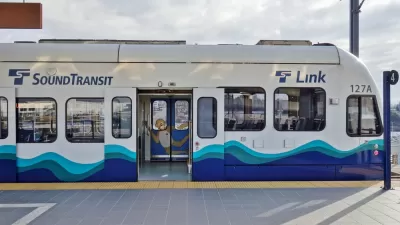From ALPR cameras mounted on garbage trucks to IMSI catchers such as Dirtboxes and Stingrays, local authorities have increased exponentially the amount of electronic surveillance, with little regard for the basic principles of privacy.
In 1972, the US Supreme Court ruled that an individual's right to privacy could only be breached by a court order, not at the discretion of law enforcement agencies. The majority in the case wrote: "The Fourth Amendment contemplates a prior judicial judgment, not the risk that executive discretion may be reasonably exercised."
A lot has happened in the 40-plus years since that decision.
Recently, in San Jose, CA, city leaders approved a study of a plan to place license-plate readers on garbage trucks. Since garbage trucks go around every street of the city at least once a week, the trucks can be used to locate parked vehicles in places where police cruisers usually don’t go. Garbage truck drivers wouldn’t see the information collected.
The ALPR (Automatic License Plate Recognition) device would send its data directly to the police, who could then build a massive database of cars parked on the street. San Jose already has six ALPR systems mounted on police cars and has set aside $68,400 for more units next year.

FULL STORY: Cities Should Stop Electronic Warrantless Surveillance

Alabama: Trump Terminates Settlements for Black Communities Harmed By Raw Sewage
Trump deemed the landmark civil rights agreement “illegal DEI and environmental justice policy.”

Planetizen Federal Action Tracker
A weekly monitor of how Trump’s orders and actions are impacting planners and planning in America.

The 120 Year Old Tiny Home Villages That Sheltered San Francisco’s Earthquake Refugees
More than a century ago, San Francisco mobilized to house thousands of residents displaced by the 1906 earthquake. Could their strategy offer a model for the present?

In Both Crashes and Crime, Public Transportation is Far Safer than Driving
Contrary to popular assumptions, public transportation has far lower crash and crime rates than automobile travel. For safer communities, improve and encourage transit travel.

Report: Zoning Reforms Should Complement Nashville’s Ambitious Transit Plan
Without reform, restrictive zoning codes will limit the impact of the city’s planned transit expansion and could exclude some of the residents who depend on transit the most.

Judge Orders Release of Frozen IRA, IIJA Funding
The decision is a victory for environmental groups who charged that freezing funds for critical infrastructure and disaster response programs caused “real and irreparable harm” to communities.
Urban Design for Planners 1: Software Tools
This six-course series explores essential urban design concepts using open source software and equips planners with the tools they need to participate fully in the urban design process.
Planning for Universal Design
Learn the tools for implementing Universal Design in planning regulations.
Clanton & Associates, Inc.
Jessamine County Fiscal Court
Institute for Housing and Urban Development Studies (IHS)
City of Grandview
Harvard GSD Executive Education
Toledo-Lucas County Plan Commissions
Salt Lake City
NYU Wagner Graduate School of Public Service





























